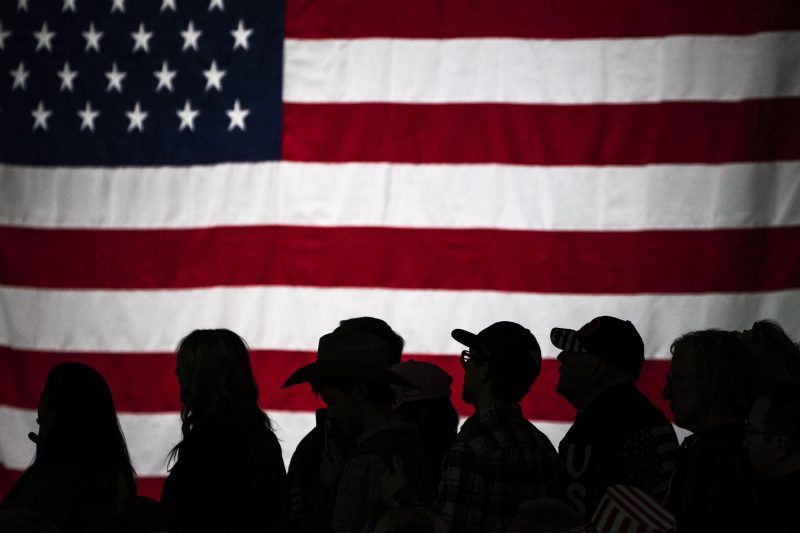In a political landscape that has traditionally favored Democratic candidates, Nevada has been a reliable stronghold for the party in recent years. However, recent developments suggest that this long-standing trend may be on the brink of change as the state appears to be slipping from President Biden’s grasp.
The shifting dynamics in Nevada can be attributed to a combination of internal and external factors that have culminated in a political environment that is increasingly less accommodating to the Democratic party. One of the key factors contributing to this shift is the changing demographics of the state. Nevada has witnessed a steady influx of new residents, many of whom come from more conservative parts of the country. This influx has altered the demographic makeup of the state, tilting it towards a more conservative-leaning electorate.
Furthermore, the economic landscape in Nevada has undergone significant changes in recent years, particularly in the aftermath of the COVID-19 pandemic. The state’s economy, which is heavily reliant on industries such as tourism and hospitality, has been heavily impacted by the pandemic-induced restrictions and shutdowns. This economic uncertainty has left many Nevadans disillusioned with the current administration’s handling of the crisis, leading to growing discontent among voters.
Additionally, President Biden’s policies and priorities have not resonated as strongly with the Nevada electorate as they have in the past. The President’s ambitious agenda, including initiatives such as the Build Back Better plan and efforts to combat climate change, have faced resistance from some segments of the Nevada population. This lack of alignment with the priorities of Nevada voters has created a sense of disconnect between the administration and the electorate.
The Republican party, sensing an opportunity in the changing political landscape of Nevada, has intensified its efforts to capitalize on the shifting dynamics. The party has ramped up its outreach efforts in the state, focusing on issues that resonate with Nevada voters, such as economic recovery and public safety. Republican candidates have also been successful in mobilizing support from key demographics, such as rural voters and independent voters, further bolstering their prospects in the state.
As Nevada teeters on the edge of political change, the upcoming elections will be crucial in determining the state’s future trajectory. The outcome of these elections will not only shape the political landscape of Nevada but also have broader implications for the national political scene. Whether the state ultimately slips from President Biden’s grasp or remains a Democratic stronghold remains to be seen, but one thing is certain – Nevada is at a crossroads, and the decisions made in the coming months will have far-reaching consequences.
